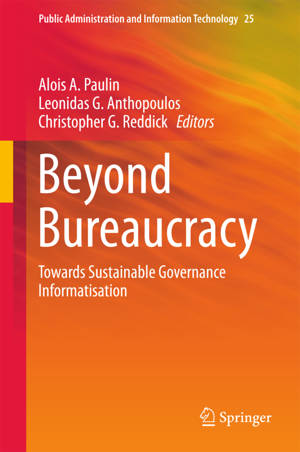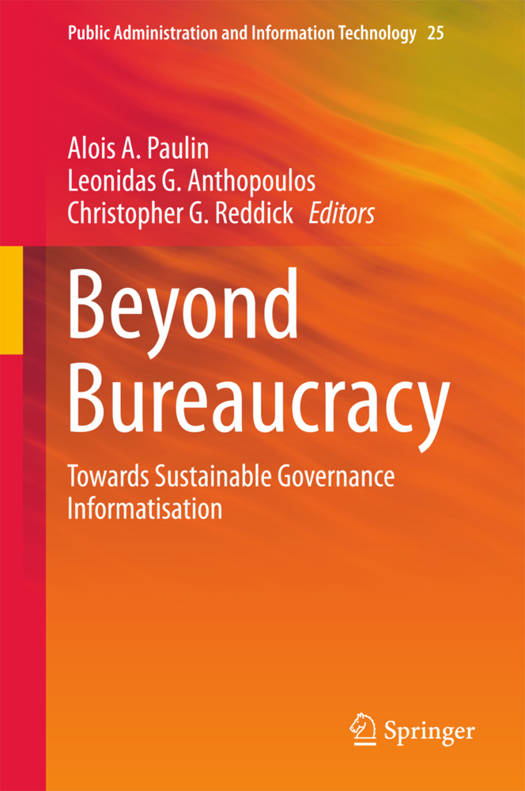
- Retrait gratuit dans votre magasin Club
- 7.000.000 titres dans notre catalogue
- Payer en toute sécurité
- Toujours un magasin près de chez vous
- Retrait gratuit dans votre magasin Club
- 7.000.000 titres dans notre catalogue
- Payer en toute sécurité
- Toujours un magasin près de chez vous
Beyond Bureaucracy
Towards Sustainable Governance Informatisation
137,45 €
+ 274 points
Description
This book examines the role of bureaucracy in modern technologically advanced societies, the traditional models of governance, and the potential of information technology to fundamentally change and improve governance. In the area of public-domain governance, information and communication technologies (ICTs) have empowered public agencies to improve their activities and to strengthen the efficiency of their operations. Technology has enabled optimized transfer of knowledge and information between government agencies, more efficient supervision and control of relationships with citizens, and higher efficiency in law enforcement through better access to information. Throughout the last decades, technology has been used to strengthen the role of state bureaucracies and the relationship between the civil service and the citizens. We have witnessed the transformative powers of ICTs in private-sector enterprises in well-structured technological landscapes, which has produced new ecosystems comprised of software developers, providers, and consumers who provide and consume new products and services in ecosystems that are based on clear technological standards and shared modular generic artefacts, which allow for distributed peer production. ICTs will shape cultural and civic discourse and create products, services and tools, relying on the open toolsets, technologies and exchange of knowledge between peers. This book will be of particular interest to government CIOs, IT/IS managers, researchers, students, and practitioners in technical sciences, public administration, business management, public policy and IS management.
Spécifications
Parties prenantes
- Editeur:
Contenu
- Nombre de pages :
- 375
- Langue:
- Anglais
- Collection :
- Tome:
- n° 25
Caractéristiques
- EAN:
- 9783319541419
- Date de parution :
- 03-05-17
- Format:
- Livre relié
- Format numérique:
- Genaaid
- Dimensions :
- 156 mm x 234 mm
- Poids :
- 716 g






